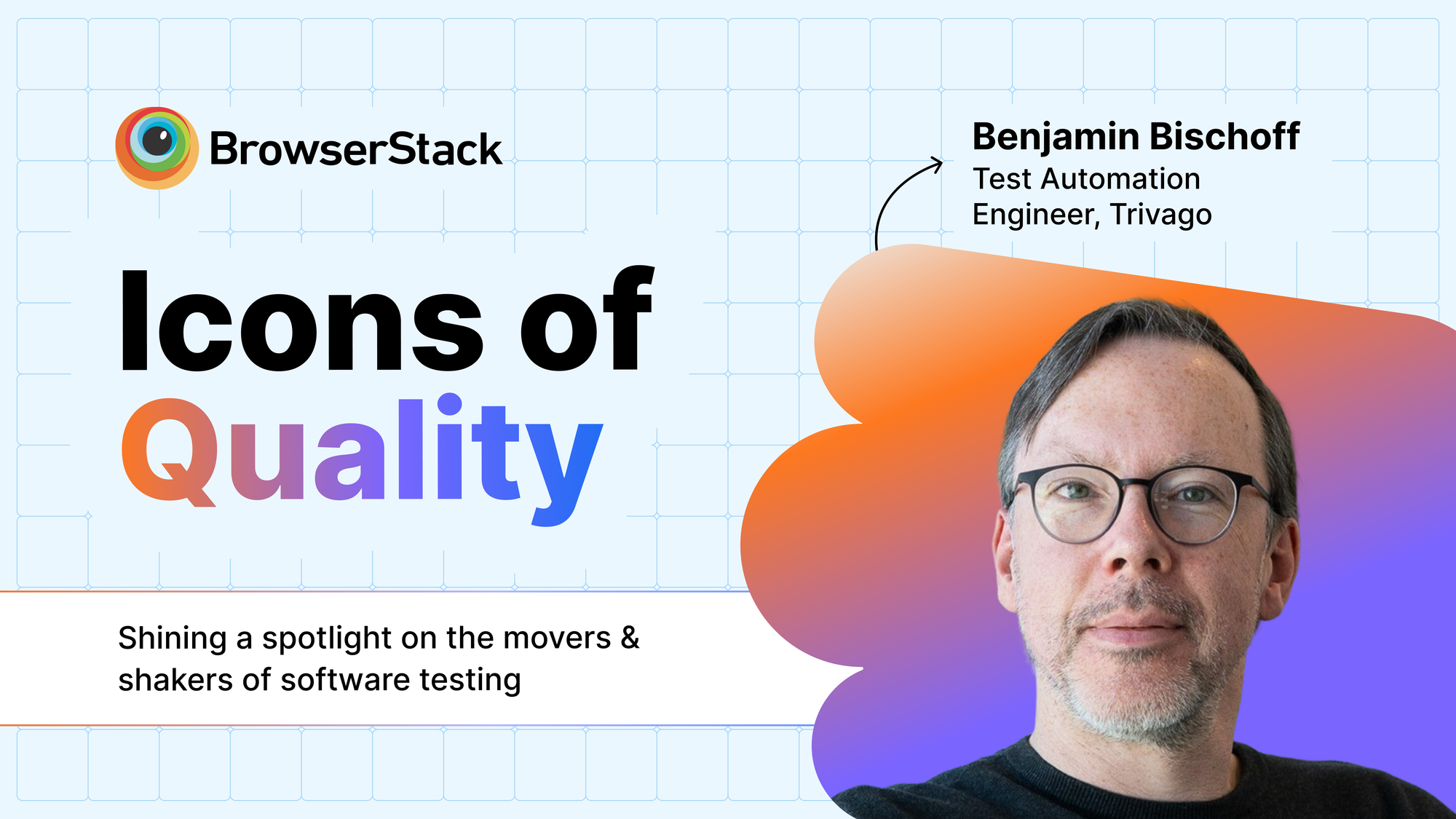
To celebrate the relentless passion and invaluable contributions of leaders in software quality, BrowserStack is proud to honour some of the icons in the testing space. These are the visionaries who not only push the industry forward with their expertise but also enrich the entire testing community by generously sharing their knowledge and thought leadership.
Some of the most profound advocates for testing are those who have seen the software lifecycle from multiple angles. Benjamin Bischoff, a Test Automation Engineer at trivago, is a prime example. After 15 years as a software developer, he transitioned to test automation, bringing a deep appreciation for code craftsmanship to the world of quality. As a blog writer, conference speaker, and open-source contributor, Benjamin champions the fundamentals of good testing practice over fleeting trends. His unique journey, which includes using the skills he learned as a close-up magician to master public speaking, makes him a truly insightful Icon of Quality.
We spoke with Benjamin about his pragmatic view on AI, the irreplaceable value of conferences, and what he learned after underestimating the testing profession.
What are the most exciting aspects of your role as a Test Automation Engineer at Trivago?
The most exciting is the combination of software development and testing methodologies that come together here. This role combines a lot of aspects of architecture, cloud technologies, DevOps, AI, etc. For me, this constant juggling of topics along with the required learning is great.
What’s a testing trend/innovation that’s got you excited these days?
I am not too excited about the AI testing tools and services that are out there right now because for me, they miss the fundamentals of good testing practices. I am way more excited about advancements like the Selenium BiDi specification that is unifying how we can test against different browsers and devices.
What's your hot take on AI in testing?
AI in testing is not entirely useful at the moment because it requires a lot of work to double-check the output and align it with existing workflows. It may not save time or resources yet. Also, the cognitive offloading is dangerously making us less concerned and, frankly, maybe even less sharp the more we rely on it.
What's one piece of advice you’d give to someone just starting their career in testing?
It is important to learn the fundamentals of testing—why are we doing it, how can we make it valuable, and what approaches and methods are available. For automation, it is very helpful to know how software development works and what are the points in the development and deployment lifecycle that can be improved.
How do you keep up with all the new trends and tools in software testing?
There are multiple ways: newsletters, articles, blog posts, and videos. But most importantly: conferences. These are usually where the real wisdom is spread that is important for our craft.
What are the things you wish you knew about testing when you started your career?
Since I started as a developer and only gradually transitioned to the world of testing, I completely underestimated the tester profession. Now I know how hard it actually is to properly test and to communicate your findings.
Outside of the tech world, what's a hobby or activity you're really passionate about?
I am really passionate about three things: close-up magic, making video games, and music, especially Reggae. Magic, in particular, has had a big impact on my career because it gave me the tools to pursue public speaking.
(Responses have been edited for clarity.)
Stay tuned as we continue to spotlight more #IconsOfQuality in the coming days, honoring those who make a difference in the field of software testing. If you know someone who’s made an impact in your software testing journey, nominate them here and share your stories using #IconsOfQuality.
